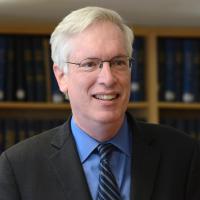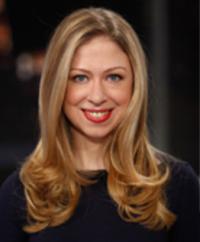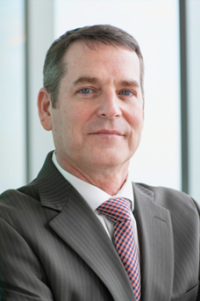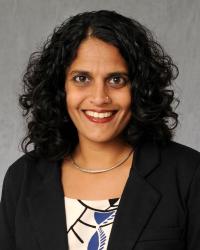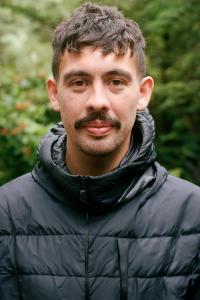
Faculty Podcasters Find an Audience
In recent years, podcasts have exploded in popularity, becoming an important stop for politicians as they seek to win votes. By one estimate, more than a third of Americans listen to eight or more podcast episodes a week, choosing from more than half a million active podcasts, including thousands in the health and wellness space. Across Columbia Mailman School, faculty are embracing the medium to share their expertise with new audiences, covering topics from environmental health justice to public health history and the spread of health misinformation.
Public Health Policy Insights
This November, the Center for Public Health Systems launched Who the Health Cares?, a podcast that examines the public health system in the United States, from its historical roots to the latest controversies. In the first episode, host Michael Sparer, outgoing chair of Health Policy and Management and director of the School’s new Center for Public Health Systems, takes listeners on a tour of public health history, explaining how our current system dates back to the Great Sanitary Awakening in the mid-19th century, with the recognition that garbage and filth lead to germs and disease. Two additional episodes are now available: one examines why public health in the United States is underfunded and distrusted, and another examines what local health departments do and asks what public health leaders can do to regain trust.
Celebrated for his hour-long lectures delivered without slides, Sparer kept opening episodes to 15 minutes. Who the Health Cares? was developed as part of the Center for Public Health Systems’ commitment to educational programming; episodes are produced by an in-house Center team led by Rachel Ferat and Becky Sale, and distributed by Mission Based Media, a company that specializes in health education content and podcasts. A second season, available in early 2026, will feature longer episodes with guest interviews from both public health leaders and skeptics. Sparer aims to reach audiences far beyond those familiar with his lectures, including policymakers and public health practitioners, as well as anyone with an interest in history, politics, and public health.
“One of the goals of the podcast is to tell the story of public health in a way that humanizes it and illustrates its value. ... Public health may be inherently political, but it doesn’t need to be partisan, and we aim to provide a window into the world of the local health department, one that leads to greater understanding and greater trust,” Sparer explains.
Countering Misinformation
Earlier this fall, Chelsea Clinton, DPhil, MPH ’10, an instructor in Health Policy and Management and a member of the School’s Board of Advisors, launched That Can’t Be True with Chelsea Clinton, a weekly podcast directed at debunking health misinformation (some of which is spread on other popular podcasts). In her October 2 episode, public health nutrition scientist Jessica Knurick sets the record straight on seed oils, raw milk, and fluoride. The October 9 episode features Emily Oster, author of best-selling books on pregnancy, who speaks about the safety of Tylenol during pregnancy. Other episodes explore longstanding public health challenges like maternal mortality and domestic violence. The podcast has quickly attracted a sizable audience. That Can’t Be True, which is co-produced by the Clinton Foundation and Lemonada Media, recently reached number one in Apple Podcasts’ Health & Fitness category and among the top 10 podcasts overall.
The former first daughter and current vice chair of the Clinton Foundation and of the Clinton Health Access Initiative says she grew up listening to the radio with her mother. “I’ve always consumed information by reading, but also by listening. It feels very organic for me to be engaged in this way, because it very much is how I engage in the world,” Clinton says. That Can’t Be True is a natural successor to her first podcast, In Fact, which released episodes in 2021and 2022 focused on what public health evidence says about topics like gun violence, climate change, and substance use. The new series aims to reach audiences that might otherwise be misinformed, whether by someone who doesn’t know the facts or by someone intent on spreading misinformation and disinformation. The goal, she says: “direct communication between people who really know what they’re talking about and people who are curious to know what they’re talking about.”
Environmental Health Sciences Explained
Several Columbia Mailman School environmental health scientists have launched or will soon be launching podcasts. This fall, NEXUS (Network for Exposomics in the U.S.) debuted a podcast to share information about exposomics—a rapidly advancing field that examines the totality of environmental exposures and their effect on health. The podcast, which takes the form of a roundtable discussion among NEXUS leadership, including Gary Miller, Vice Dean for Research Strategy and Innovation, also shines a light on NEXUS's activities as a national coordinating center for ongoing research aimed at transforming the biomedical enterprise.
In 2019, Ami Zota, associate professor of environmental health sciences, created Agents of Change in Environmental Justice, a leadership training program for early-career environmental health scientists from systematically marginalized backgrounds. The program emphasizes research translation, science communication, and public engagement. A podcast was an obvious choice. Since it debuted in 2020, the podcast, hosted by Brian Bienkowski, managing editor of The New Lede, has released more than 100 episodes featuring the voices of public health experts (among them are several faculty: Diana Hernandez, Robbie Parks, and Zota herself). Fellows in the program also have the opportunity to produce guest episodes. “I am proud that we have used our platform to highlight voices, stories, and research of early-career scientists who are innovators in environmental and climate health,” Zota says.
In the spring of 2024, Robbie Parks, assistant professor of environmental health sciences, and emergency manager Nate Matthews-Trigg formed the Reddit group heat_prep, which bills itself as “an extreme heat preparedness community” where members can share information, innovative strategies, and cooling technology to protect health and well-being. Now, the longtime friends are preparing to launch a weekly podcast called Surviving the Climate to explore similar themes, with the first episode expected to drop in the spring of 2026. Parks says they want the podcast to be entertaining to appeal to a broad audience: “We’ll discuss climate and disaster-related news stories, pop culture, the latest research, all with a focus on practical insights for regular people just trying to make do with what they have.”
